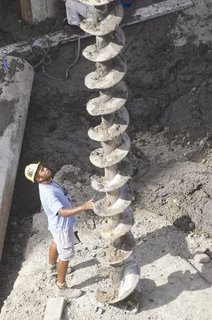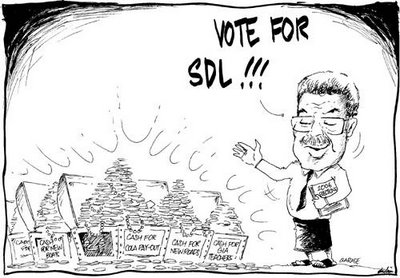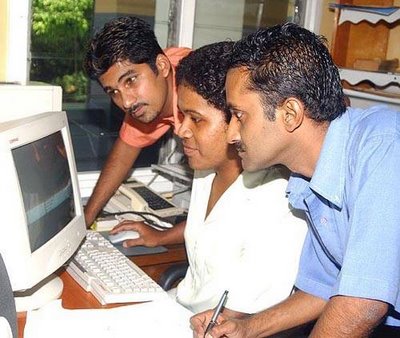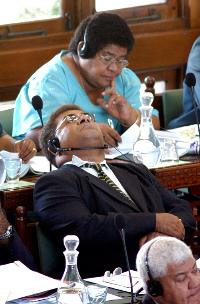The frequent promises by politicans, undoubtedly the product implementation of election promises during their first term. It also makes mockery of their integrity.
Censorship by state owned media enterprises unravels the real freedom of the Press in Fiji.
Fiji T.V policy on political advertising reminds the public of Radio Fiji's dismissal of popular talk show host.
P.M's recent comments on Fiji's population increase and the future political inclinations of the population, remains unsubstantiated at best.
It also reminds people of the S.D.L Government's decision not to conduct the census because of the non-availability of funds(which could be internationally funded, if there really was political will). Fiji has legislated the census to be conducted every ten years .
It is a reflection of failed responsibilities of a government, to enable the quantification and allocation of resources for future developments. Sadly, the absence of census data makes the election process more ambiguous and furthemore the non availability of data means that the S.D.L Government does not really care about the progress of Fiji citizens or the resources of the country.
Fiji's last census was done in 1996. However Fiji Department of Statistics have projected the population data of 1996 and interpolated that into a 2005 projection. The 2005 Fiji population projection can be found on this link. (N.B report is a PDF file).
The quick stats found on the homepage of the statistic Bureau is as follows. There is no indication of how the data below was calculated or what type of mathematical function was used. There is a discrepancy in racial population data that must be scrutinized.
Key Statistics
POPULATION 31st Dec 2005 (prov est)
Fijians: 463,432
Indians: 316,093
Others: 66,560
TOTAL: 846,085
Recognizing the longer term realities and implications of current actions, the development challenge is to meet the needs of present generations and improve their quality of life without compromising the ability of future generations to meet their own needs. (United Nations, 1994).
Excerpt from UNSECO analysis of Fiji 1996 census.
Implications for PlanningPopulation growth during the
period 1986-96 was reduced by the high migration rate. However, if migration trends were to reverse, this would result in a high growth rate because of the high rate of natural increase. To illustrate the point:
A population growth of 0.8% means that Fiji's population would double in 87 years time;
A rate of natural increase of 1.9% means that Fiji's population would double in only 36 years time. Government should develop policies aimed at filling the gaps created by the brain drain now, and that anticipated in the future. Examples are: more opportunities for training in professional, technical and managerial positions, keeping in mind past trends when awarding scholarships; expanded training programs in both public and private sectors in the professional and technical areas, and management at all levels to meet current and anticipated demands in the future;
More opportunities to be given to women to be appointed to managerial positions at all levels, in view of the high rate of emigration of male managers. Government should strengthen efforts to achieve sustainable economic and social development to reduce economic disparities between destination countries and Fiji. (P.47)An excerpt from Fiji Times article unravels the voters discontent with lip-service of Fiji politics.
Stick to promises, leaders urged
Sunday, April 16, 2006
Political leaders have been asked to be serious when it comes to serving the people and fulfilling promises made to them. Sera Wati of Nanuku Street in Suva, who has been living there for the past 14 years said it was hard to cope up with expanses today and it was even sadder to see that political leaders are just good listeners. Sera, 41 lives with her husband, Aisea Kuruiuru, her mother, a relative and her five children. All her children are schooling and she explains that it was hard especially when they had to meet other family commitments like paying up the electricity and water bills.
Her husband works in the maintenance department at the University of the South Pacific earning $220 fortnightly. Sera is a housewife and looks after a small canteen which the family has started just recently. She manages to get some profit from it to meet all her children's daily requirements. Sera said it was not easy sending all her children to school but her husband who is the sole breadwinner in the family was trying his best to make ends meet. She said after all expenses were covered, the family was usually left with $35 at the end of every fortnight and this, they tried to save for future needs. They also do some fishing when the need arises so every one is well fed in the family. Sera said that no political party except the United Peoples Party bothered to pay them a visit. She said when election time approaches they become familiar with the faces of political leaders, otherwise there was no sign of them. She said promises made to them by the parties should be considered genuine and for them not to be only swayed by the leaders.
Club Em Designs





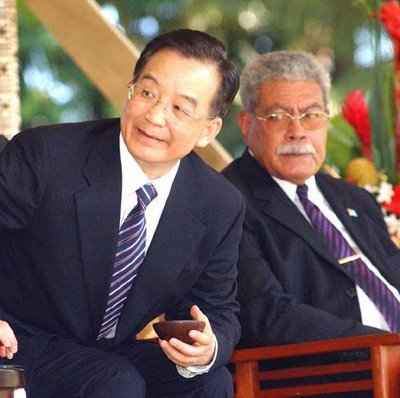
 Back to Fiji current affairs.
Back to Fiji current affairs.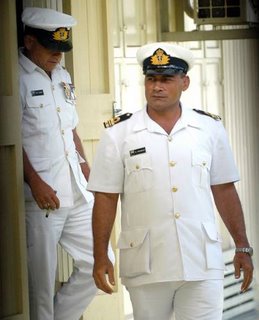 The Army's Truth Campaign continues
The Army's Truth Campaign continues 